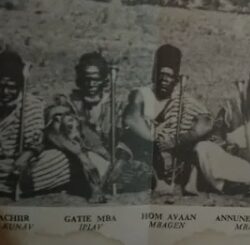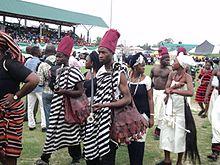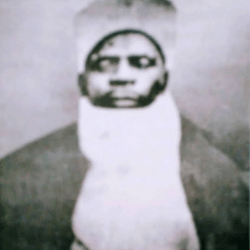On 2 January 1906 Lugard received a telegram informing him that the Tiv had attacked Abinsi and that the town was aflame.
This was indeed a perfect excuse for another punitive campaign.
His immediate response was to close River Benue to all shipping. This dramatic action was taken in the hope of impressing the colonial office with the seriousness of the situation.
Consequently, a large military contingent was assembled in readiness for the planned expedition.

The opportuned moment came when a market fight between a Hausa woman and a Jukun man resulted into a major ethnic clash between the Hausa and the Jukun. This incident aggravated an already tense situation within Abinsi and its environs. The tense atmosphere had to do with the rivalry between the chief of Jukun settlement and the headman of the Hausa traders about who should exercise paramount authority within Abinsi.

The stabbing of a Hausa trader therefore served as a major catalyst of the Hausa-Jukun battle. Consequently, when the Tiv were invited by the Jukun to assist in the battle, the Hausa sought refuge behind the walls of the Niger Company’s compound.
Heavy fighting around the premises of the Niger Company resulted in the destruction of company property. The Niger Company turned to the govemment, urging it to intervene in the crisis. WAFF (West Africa Frontier Forces) were mobilized under the command of one Captain Short.
It was a truly formidable force, consisting of 38 officers, 13 British NCOs some 600 soldiers, supported by artillery and max1m gun units, and with over 1000 carriers.
In the fighting which ensued, six hundred corpses were recovered at Abinsi with an unknown number drowned. The outcome of this last British military encounter with the Tiv was that it succeeded in bringing Tivland under British authority.
Since the Tiv were a decentralized social formation, mere subjugation of sections of the Tiv under British authority was not enough. For the British to make their presence felt throughout Tivland required not an investment in the use of force but in the politics of control It was this investment in the politics of control that ultimately resulted into colonisation in Tivland.















